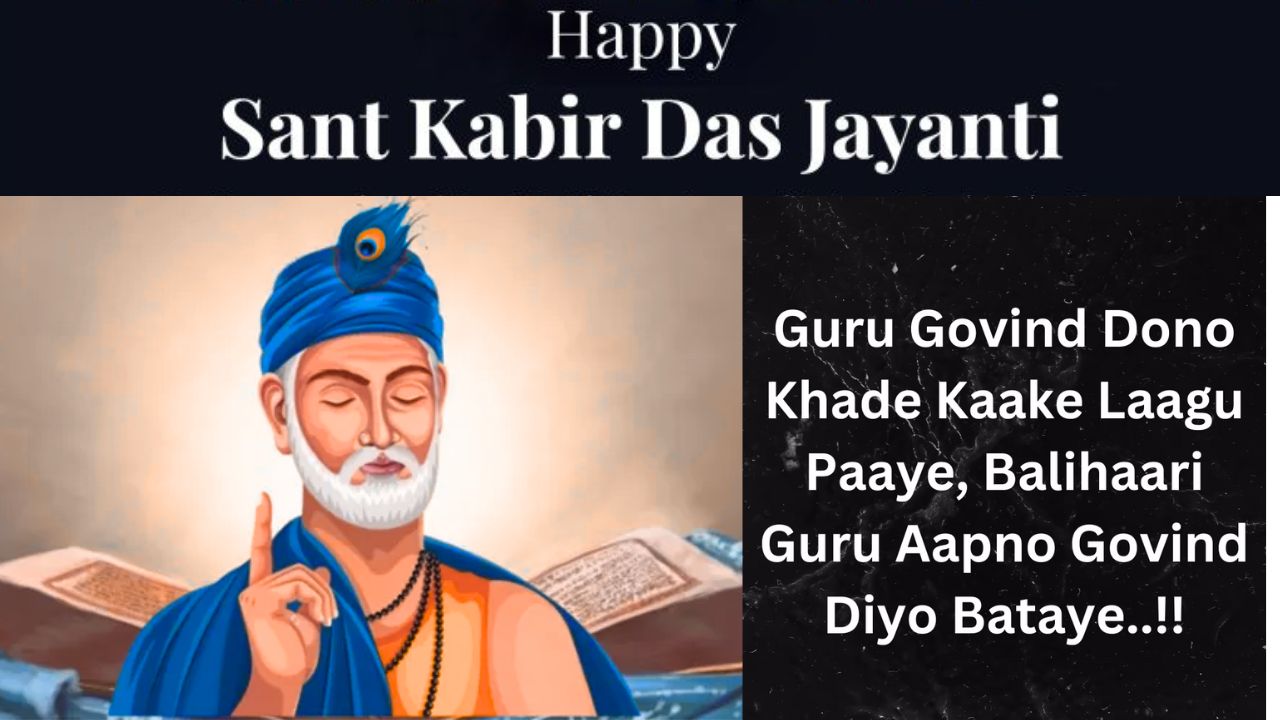
Every year, Kabir Jayanti is celebrated on the full moon day of the Hindu month of Jyeshtha, which usually falls in May or June. In 2025, Kabir Jayanti will be observed on Wednesday, June 11, marking the 648th birth anniversary of Sant Kabir Das, a 15th-century Indian mystic poet, saint, and social reformer whose teachings continue to inspire millions across the world.
Who Was Sant Kabir Das?
Sant Kabir Das is considered one of the most influential figures of the Bhakti Movement in India. He was born in 1398 (as widely believed), in Varanasi, Uttar Pradesh. While the exact details of his birth remain unclear, legends suggest that he was born to a Brahmin widow and later raised by a Muslim weaver family, a symbolic merging of Hindu and Islamic traditions.
Kabir led a simple life, earning his livelihood as a weaver (julaha). Despite his humble background, his spiritual insights and fearless criticism of religious orthodoxy made him a revered figure across religious and social lines.
Significance of Kabir Jayanti
Kabir Jayanti is not just a celebration of the birth of a saint; it’s a day to reflect on his timeless messages of unity, love, and truth. Devotees and followers of Kabir Panth, a spiritual community based on his teachings, observe this day with great devotion. Celebrations include:
Recitations of Kabir’s dohe (couplets)
Bhajan-kirtan sessions
Spiritual discourses
Community feasts and gatherings
These events are held not only in India but also by Kabir Panthis in various parts of the world.
Teachings of Sant Kabir Das
Kabir’s teachings cut through religious divisions and emphasized the oneness of God, truth, love, and compassion. He was a strong critic of ritualism, superstition, casteism, and religious hypocrisy. Here are some core teachings:
God is One and Formless:
Kabir believed that God resides in everyone and is beyond temples and mosques.
“Maalik sab mein ek hai, naam dharaya naay”
(The Lord is one in all; only names are different.)Truth and Simplicity Over Rituals:
He denounced empty religious rituals and stressed inner devotion and honest living.Equality of All Human Beings:
Kabir rejected the caste system and advocated for social equality, making him a pioneering social reformer.
“Jaat na puchho sadhu ki, poochh lijiye gyaan;
Mol karo talwaar ka, pada rehne do mian.”
(Don’t ask a saint’s caste, ask about their wisdom. Value the sword, not its sheath.)Guru’s Importance:
He emphasized the role of a true guru in attaining spiritual awakening.
“Guru Govind dou khade, kaake laagun paay;
Balihari Guru aapne, Govind diyo batay.”
(If both Guru and God appear before me, to whom should I bow? I bow to the Guru, who showed me God.)
Literary Contributions
Kabir’s poetic works, mainly in the form of dohe (couplets), are direct, profound, and easy to understand. His key writings include:
Bijak
Sakhi Granth
Kabir Granthavali
Anurag Sagar
Many of his verses were also incorporated into the Guru Granth Sahib, the holy scripture of Sikhism, showing the deep respect he earned across religious communities.
Kabir Das in Today’s Context
In today’s world, divided by religious intolerance, caste discrimination, and materialism, Kabir’s teachings act as a beacon of spiritual and social harmony. His messages are more relevant than ever:
Promote communal unity over religious divisions
Encourage inner spiritual search instead of superficial rituals
Practice equality and respect for all
Live a life of truth, humility, and simplicity
Global Influence and Kabir Panth
The Kabir Panth, a spiritual community following his teachings, continues to spread his message across India and abroad. Millions of Kabir Panthis consider him their guiding light, and his dohas are taught in schools and quoted in spiritual discourse.
Kabir’s two-line couplets, known as ‘Kabir Ke Dohe’, are quite famous.
Conclusion
Kabir Jayanti 2025 is a time to honor the life and legacy of Sant Kabir Das, who fearlessly challenged societal norms and guided people towards a path of love, devotion, and equality. As we mark his 648th birth anniversary, let us reflect on his teachings and strive to build a world rooted in humanity, harmony, and truth.
Read these also:
